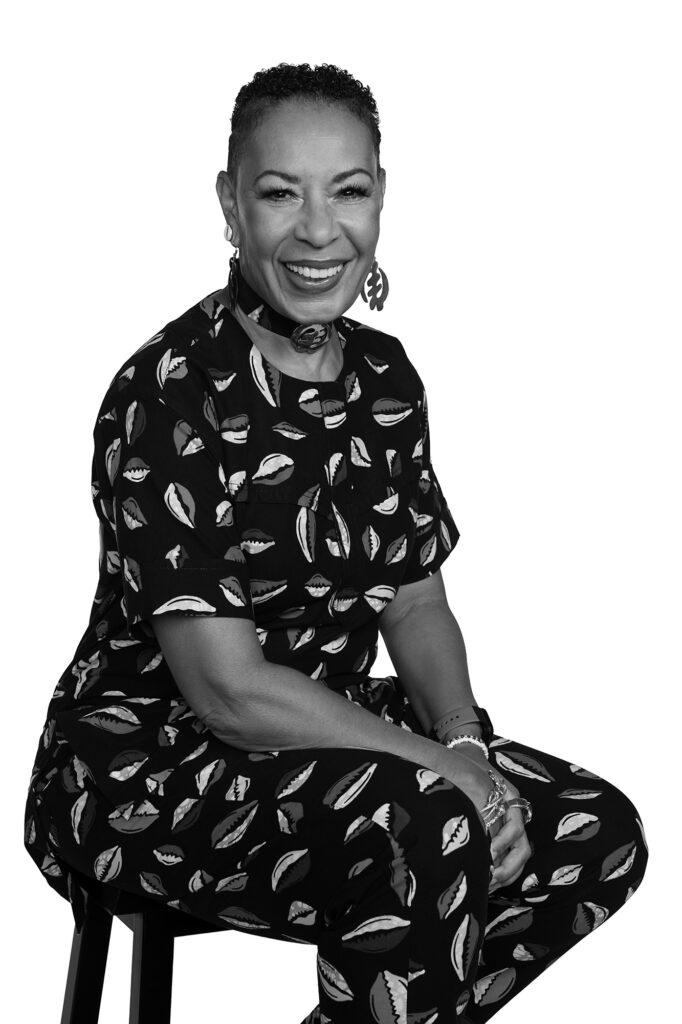Cheryl Grills is a clinical psychologist and President’s Professor of Psychology in the LMU Bellarmine College of Liberal Arts. She was appointed to the California Reparations Task Force by Gov. Gavin Newsom in May 2021. The task force’s purpose has been to survey the harms experienced by African Americans as a result of enslavement and its lingering effects on American society today and propose a comprehensive state reparations plan. Grills was interviewed by Editor Joseph Wakelee-Lynch.

How do you describe the wrongs that the state reparation proposal is intended to correct?
The California Reparations Task Force final report presented over 100 recommendations to address past and enduring harms against African Americans. Constitutionally and statutorily sanctioned from 1619 to 1865, enslavement of Black people deprived millions of Africans and their descendants of their humanity, life, liberty, citizenship, cultural heritage, and economic opportunity. Harms continued after enslavement in new forms as the state and the nation perpetuated, condoned, and profited from practices that brutalized and excluded African Americans from meaningful participation in society. This has resulted in debilitating economic, educational, and health hardships that are uniquely experienced by African Americans.
• Listen: Cheryl Grills on reparations on the LMU Magazine Off Press podcast.
California was not one of the U.S. slave states, so why should California carry a responsibility for making reparations?
Although California was admitted into the Union as a “free state,” enslavement persisted with public auctions and a fugitive slave law decreeing that a person brought to the state as a slave would be considered a slave. The state ignored its own status as a free state allowed Black people brought here by enslavers to be enslaved; used the belief system of white supremacy to restrict the freedom of Black Americans and the flourishing of Black culture and prosperity; established laws, court decisions, and government policies and practices that reinforced discrimination against Black people; contributed to a wealth gap that persists to this day at all levels of income regardless of education or family status; illegally ignored Black families’ land deeds; enforced housing segregation and allowed vigilantes to burn down Black-owned homes, providing the owners with no protection under the law; and disproportionately sterilized Black residents. California resisted Reconstruction civil rights legislation by refusing to ratify the 14th Amendment until 1959 and the 15th Amendment until 1962. Racial terror was prevalent, as Los Angeles was the epicenter of KKK activity. Klan members were prominent and numerous in governments across the state.
How soon do you expect that the state legislature will act on bills proposing a reparations process, and do you expect that process to be politically polarized?
Two members of the Task Force (Senator Bradford and Assemblymember Jones Sawyer) are shepherding the recommendations for repair in the state assembly and senate. Sen. Bradford just proposed legislation (Senate Bill 490) based on one of our recommendations. It would establish a state agency to provide oversight and accountability related to implementation of any reparations legislation. Sen. Bradford and Assemblymember Jones Sawyer will be working closely with the California Black Caucus and other lawmakers in the state over the next year.
What do you think will be the impact elsewhere in the U.S. of California’s taking up this question?
Other parts of the country have been inspired by California’s task force. When we first started there were fewer than 30 municipalities across the country involved in reparations. I also learned from a major philanthropic organization that there are some type of active reparations efforts occurring in every state in the U.S. I met recently with more than 40 representatives of government-based reparations efforts. They all said they took notice of California’s efforts, modeled legislation after ours, and designed commissions based on lessons learned from California. They also gained traction from the attention to reparations generated from our work. Where the federal government has been derelict in its duty on the issue of reparations, local communities are taking up the baton!
Was it important that the California Reparations Task Force construct an exhaustive case that will enter the historical record?
It was essential to rendering justice that we make the case for reparations grounded in highly referenced current and historical facts. We had to lay out the harms and the necessity to render justice. This is especially so given that our country suffers from historical ignorance, amnesia, and a short attention span when it comes to the experiences and needs of people of color, including African Americans. James Baldwin said, “People are trapped in history and history is trapped in them.” My goal was to educate the public and plot our escape from the scourge of anti-Blackness that has plagued this country since its inception.
What role can citizens play in the process going forward?
Everyone can join the movement for reparations. A communications strategy will launch soon to provide multiple ways to get involved. If you are a member of an organization, faith community, business, professional organization, etc., you can encourage them to join the more than 400 organizations across the country that have endorsed the efforts of the task force. The website to submit the organization’s name and/or letter of endorsement is Supportreparations.org. Sample letters, board resolutions, and motions are available on the website. We are especially interested in student organizations joining the list of principled groups supporting equity and justice.
Will you continue to play a role in the process or is your work done?
I continue to be very involved in the reparations movement in California, federally, and internationally through my role on national commissions and professional organizations focused on reparations, educating the public about reparations, and engaging elected officials to think more critically about the what and how of reparations. It is the least I can do to honor the sacrifice, trauma, resilience, and humanity of my ancestors.
